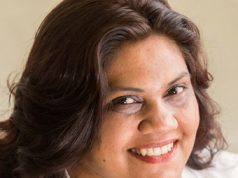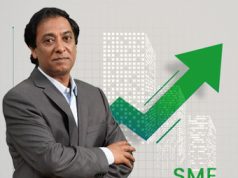Global phenomena such as plastic pollution, air pollution, pesticides in our food (Mauritius being on the red line), and the amount of carbon-dioxide emissions and other toxic gases are rising inexorably affecting both our biodiversity and our own health. If our government does not look at the global phenomenon of the world with an open mind, especially during this Budget 2020/2021 with short-term goals moving towards a long-term vision, we will inevitably be worsening the current situation of our economy vis-à-vis other tourist’s destination. The current situation of the pandemic Covid-19, is clearly teaching us one thing: “we can more continue doing business as usual”. I really hope that by now the ‘front liners’ of decision-making of our country have understood this, and follow the example of countries like Bhutan, New Zealand, Sikkim State in India who made ecology and well-being at the topline of their agenda. The Mauritian economy boost will not happen in the next 3-years (as per see), if we keep on depending solely on the financial aspect for our GDP. That said moving forward, our GDP’s focus should be reconstructed towards ecology and well-being. The Minister of Environment, Waste Management, and Climate Change, The Minister of Education and the Minister of Health and Well-being have a major contribution to make in this budget 2020/2021 a greener and holistic Mauritius.
Below are few suggestions that we need to cater to, if we want to base our GDP on ecology and well-being, and place Mauritius on the front of eco-conscious tourism Post Covid-19, for a new kind of tourism.
a) Get more than 1.3 million trees planted by June 2021:
The lack of trees in Mauritius is causing more flooding and a rise in temperature as we do not have water catchment areas to absorb heavy rainfalls and reduce the temperature rise.
– Engaging people from the hotel sector (given that the hotels are closed for the time being) in the implementation plan of the 3 reforestation plans that the Ministry of Environment, Waste Management, and Climate Change is catering for.
– Employees from the public and private sectors should be involved in tree-planting monthly as part of their community-based project along-side the motorways, roads, in Ébène and Port-Louis.
– Students need to be involved in tree-planting at the beginning of an academic year.
– Mangrove plantation initiatives by NGOs should be supported by the government.
b) Setting-Up kitchen garden in each household by June 2021:
The current situation where our money is depreciating by 25% (and might be more) clearly demonstrates that we need to depend on a self-sufficient economy. We cannot keep on relying on the importation of food for more than 70%.
– Schools should put kitchen-gardening as a mandatory subject where once a week, students (no matter which grade they are from) learn how to work the land at school as a basic life-skill.
– Student’s assignment should be setting up their kitchen-garden at home. If, they do not have a space to plant, they should be given a small bucket to set up their kitchen-garden by involving their parents.
– Barter system should be introduced in class among classmates.
c) Moving towards a Circular Economy Model
Recycling, Reusing, and Upcycling should be a model where we move towards to prevent further pollution.
– As a re-launch plan for SMEs, new grant schemes need to be put into place to encourage youth and women to revamp their business model using the circular economy model, where recycling, reusing and upcycling becomes a natural norm for the country. A budget should also be allocated for workshops and training to people who wish to revamp their business with the circular economy concept.
– Schools need to have a core subject Circular Economy where youth are encouraged to come up with innovative and creative ideas in line with the circular economy model. These ideas could be an example for the world. We need to support our younger generation in becoming innovators and creators. We can no more educate our children to fit the manufacturing industry workforce.
d) Well-being as the core of our economy
The Covid-19 situation clearly demonstrates that we do not need an office space to work, and flexi-time can be an option.
– We should follow Finland in the 4 times per week work and employees be encouraged to take up a physical activity for their mental health and well-being.
– Wellness activities should be organised once a month for employees with holistic practitioners.
– Our hotel industry should recruit more Mauritian holistic practitioners and make Mauritius a mental health well-being destination in their package.
To sum up, revamping our economic model will demand us to think outside of the box. Relying solely on money will not be sustained in the long-run for Mauritius.
We need transformational leaders who would dare to take some bold decisions for this country’s sustainability.








